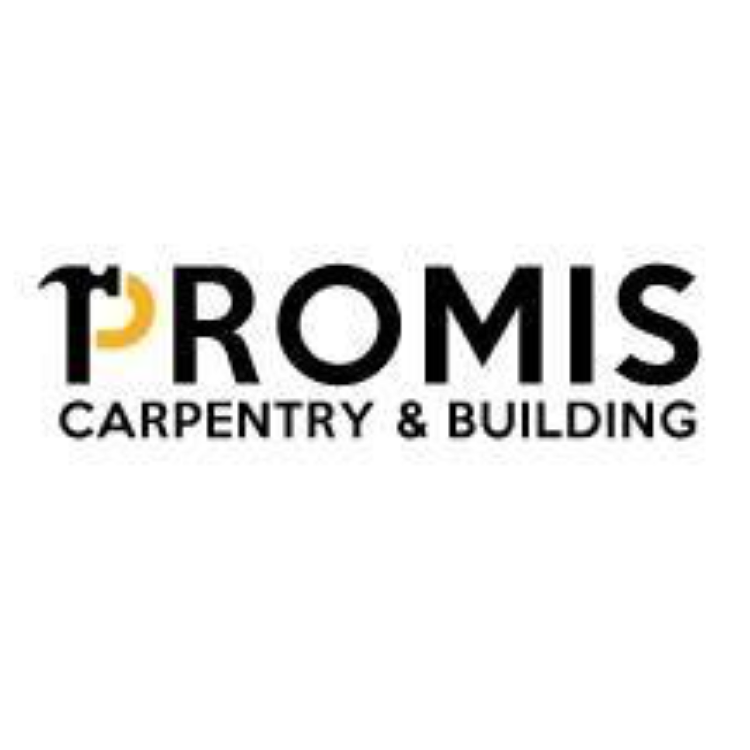Extension Builders in Paddington
Welcome to March Property & Construction Ltd, the leading experts in Extension Builders, Renovations, New Build... read more »
Sallaku Building Services is a premier choice for all your construction and renovation needs in Brentford End, proudly s... read more »
SMR Building Contractors Ltd, nestled in the vibrant area of Bromley Park, stands as a beacon of excell... read more »
Welcome to BH CONSTRUCTION, your premier choice for Extension Builders, Bathroom Fitters, Renovations, Flooring, Plasterers, and New Buil... read more »
Welcome to Puci Construction Ltd, your premier choice for expert building and renovation services in Hendon and the wider Barne... read more »
Welcome to AG Partners LTD, your go-to experts for builders, carpenters, and property maintenance services in... read more »
Welcome to Wood And Craft Kitchens, your premier choice for expert kitchen fitters and builders in South Tottenham, serving the vibrant c... read more »
Earthmates Construction Limited is a premier construction company based in Uxbridge, offering a wide range of services i... read more »
S & B Design And Build Ltd is a distinguished construction company nestled in the bustling area of Southall, providing a... read more »
Welcome to Hydrogen Building & Maintenance Ltd, the leading choice for builders, painters & decorators, and property maintenance services... read more »
Elite Constructions London Ltd, based in the bustling area of Shepherd's Bush, is your premier choice for builders, exte... read more »
Welcome to Miraclepaint & Construction, your go-to experts for all building and renovation needs in Frognal, Camden, London. As a leading... read more »
Welcome to Haze Construction Limited, your go-to experts for all building needs in Central London and the City of London. With a rich his... read more »
Promis Carpentry & Building is a trusted name in the heart of West Molesey, offering a wide range of expert services inc... read more »
G R Maintenance Ltd is a premier property maintenance company based in the vibrant area of Bermondsey, offering a compre... read more »
MS Property Service is a premier tradespeople business located in the heart of Welling, offering a comp... read more »
Welcome to RCB Group Design and Build, your premier choice for builders, extension builders,... read more »
Welcome to S.K Building & Decorating Services, your trusted partner for all your construction and renovation needs in Deptford and across... read more »
Alex Interiors Ltd: Your Premier Choice for Building Services in Edgware and Barnet, London
Welcome to Alex Inte... read more »
SH Eagle Construction Ltd is a distinguished construction company nestled in the bustling area of West Acton, offering a... read more »
Search Extension Builders in places nearby
Understanding the Role of Extension Builders in Paddington
Paddington, a vibrant district in the heart of London, is renowned for its rich history and architectural charm. As the demand for space grows, many homeowners are turning to extension builders in Paddington to enhance their living spaces. These skilled professionals play a crucial role in transforming homes, ensuring they meet modern needs while preserving their unique character.
The Importance of Home Extensions
Home extensions are more than just additional rooms; they are a way to breathe new life into a property. Whether it's a growing family needing extra bedrooms or a desire for a spacious kitchen, extensions offer a practical solution. In Paddington, where space is at a premium, these additions can significantly increase a home's value and functionality.
Types of Home Extensions
There are various types of home extensions, each serving different purposes:
- Single-storey extensions: Ideal for expanding kitchens or living areas.
- Double-storey extensions: Perfect for adding multiple rooms, such as bedrooms and bathrooms.
- Wrap-around extensions: Combine side and rear extensions for maximum space.
- Loft conversions: Utilise attic space for additional bedrooms or offices.
Choosing the Right Extension Builder
Selecting the right extension builder in Paddington is crucial for a successful project. Homeowners should consider several factors to ensure they choose a reputable and skilled professional.
Experience and Expertise
Experience is a key indicator of a builder's capability. Look for builders with a proven track record in Paddington, as they will be familiar with local regulations and architectural styles. Expertise in specific types of extensions can also be beneficial, ensuring the builder can handle the unique challenges of your project.
Reputation and Reviews
Word of mouth and online reviews are invaluable resources. Positive feedback from previous clients can provide insight into a builder's reliability and quality of work. Additionally, ask for references and view past projects to gauge their craftsmanship.
Understanding Planning Permissions
In Paddington, obtaining planning permission is often necessary for home extensions. Understanding the process and requirements is essential to avoid delays and complications.
When is Planning Permission Required?
Not all extensions require planning permission. However, if your project significantly alters the building's appearance or exceeds certain size limits, permission will be necessary. Consulting with your builder and local council can clarify these requirements.
Permitted Development Rights
Some extensions fall under permitted development rights, meaning they don't require formal permission. These rights are subject to specific conditions, such as size and location, and can vary depending on whether the property is in a conservation area.
Designing Your Extension
The design phase is where creativity meets practicality. A well-designed extension should complement the existing structure while meeting the homeowner's needs.
Working with Architects
Collaborating with an architect can bring your vision to life. Architects can provide innovative solutions and ensure the design adheres to building regulations. They can also help maximise natural light and energy efficiency, creating a comfortable and sustainable space.
Incorporating Modern Trends
Modern design trends can enhance the appeal of your extension. Open-plan layouts, bi-fold doors, and eco-friendly materials are popular choices that add value and functionality. Your builder can advise on the latest trends and how they can be integrated into your project.
Budgeting for Your Extension
Budgeting is a critical aspect of any home extension project. Understanding the costs involved can help you plan effectively and avoid financial surprises.
Estimating Costs
The cost of an extension varies based on size, complexity, and materials. On average, a single-storey extension in Paddington can range from £1,200 to £2,000 per square metre. Double-storey extensions typically cost more due to additional structural work.
Managing Unexpected Expenses
It's wise to set aside a contingency fund for unexpected expenses, such as unforeseen structural issues or changes in material costs. A 10-15% buffer is generally recommended to cover these potential costs.
Construction Phase: What to Expect
The construction phase is where plans become reality. Understanding what to expect can help homeowners prepare for the disruption and excitement of building work.
Timeline and Milestones
Construction timelines vary based on the project's complexity. A typical single-storey extension might take 3-4 months, while more extensive projects could extend to 6 months or more. Your builder should provide a detailed timeline with key milestones to track progress.
Minimising Disruption
Construction can be disruptive, but there are ways to minimise its impact. Clear communication with your builder about working hours and site access can help. Additionally, setting up temporary living arrangements or using alternative entrances can reduce inconvenience.
Ensuring Quality and Compliance
Quality and compliance are paramount in any construction project. Ensuring your extension meets building standards is crucial for safety and longevity.
Building Regulations
Building regulations set standards for construction quality and safety. Your builder should ensure the extension complies with these regulations, covering aspects such as structural integrity, fire safety, and insulation.
Quality Assurance
Regular inspections and quality checks can ensure the work meets your expectations. Engaging an independent inspector or surveyor can provide an unbiased assessment of the construction quality.
Finalising Your Extension
As construction nears completion, there are several final steps to ensure your extension is ready for use.
Snagging and Finishing Touches
Snagging involves identifying and rectifying minor defects or unfinished work. Conduct a thorough inspection with your builder to address any issues before finalising the project. Adding finishing touches, such as paint and fixtures, can personalise the space.
Handover and Documentation
Upon completion, your builder should provide all necessary documentation, including warranties and compliance certificates. These documents are essential for future reference and potential property sales.
Maintaining Your Extension
Proper maintenance ensures your extension remains in top condition for years to come.
Regular Inspections
Conduct regular inspections to identify any signs of wear or damage. Addressing issues promptly can prevent more significant problems and extend the lifespan of your extension.
Cleaning and Upkeep
Regular cleaning and upkeep, such as gutter cleaning and repainting, can preserve the appearance and functionality of your extension. Establishing a maintenance schedule can help keep your space in excellent condition.
Frequently Asked Questions
- Do I need planning permission for a small extension in Paddington? It depends on the size and location of the extension. Consulting with your builder and local council can provide clarity.
- How long does a typical home extension take? A single-storey extension usually takes 3-4 months, while more extensive projects may take longer.
- What should I consider when choosing an extension builder? Look for experience, reputation, and expertise in the type of extension you desire.
- How can I ensure my extension complies with building regulations? Work with a reputable builder who understands and adheres to local building standards.
- What are the benefits of a home extension? Extensions provide additional space, increase property value, and can improve functionality and comfort.
- How can I minimise disruption during construction? Clear communication with your builder and planning temporary arrangements can help reduce inconvenience.
In conclusion, extension builders in Paddington play a vital role in enhancing homes, offering expertise and guidance throughout the process. By understanding the intricacies of planning, design, and construction, homeowners can create beautiful, functional spaces that meet their needs and add value to their properties.
Send a message

























